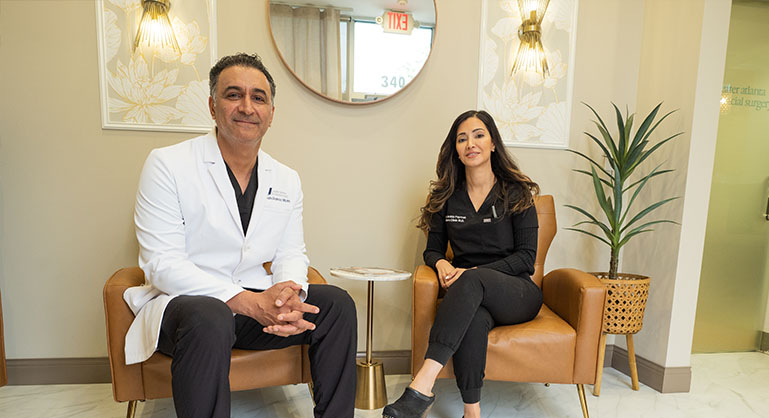Greater Atlanta
Oral Facial Surgery
Bespoke Implant Dentistry and First Class Care

If you’ve lost a tooth or are missing several teeth, dental implants give you a relatively permanent way to fix your smile.
Learn More

Ignoring your wisdom teeth can lead to a lot of problems. In rare cases it’s ok to leave them, we recommend consulting with your dentist to check on their progress to make a determination.
Learn More

The All-On-4 dental treatment is a revolutionary dental restoration treatment that has completely changed the way surgeons approach replacing a full set of teeth.
Learn More

Bone grafting is sometimes necessary for dental implants, depending on the integrity of your jawbone. Over time, the jawbone in the area where there are missing teeth begins to deteriorate and atrophy.
Learn More

The teeth in an hour procedure is a revolutionary new treatment that can provide patients with fully functional teeth mounted onto dental implants in one procedure.
Learn More

Sedation dentistry refers to the use of medication to help relax patients during dental procedures. Sedation can take a number of different forms, and it’s useful in a variety of situations.
Learn More

If you have a toothache or if you sustain an injury to your mouth, you may need to schedule an appointment with an emergency dentist.
Learn More

Your temporomandibular joint, or TMJ for short, connects your jawbone to your skull by acting like a sliding hinge. You have one on each side of the jaw, and TMJ disorders arise when something goes wrong with this joint.
Learn More

An impacted tooth simply means that it is “stuck” and cannot erupt into function. Patients frequently develop problems with impacted third molar (wisdom) teeth.
Learn More

Oral pathology is concerned with the disease inside the mouth: the inside of the mouth is lined with a special kind of skin called mucosa that’s very smooth and pink.
Learn More

Dr. Shahriari HAS EXTENSIVE TRAINING AND EXPERTISE in facial trauma injuries, and we’re all well-prepared to handle an emergency if one happens.
Learn More

Obstructive Sleep Apnea (OSA) is a very serious condition that can even be life-threatening, if the case is severe enough. OSA causes disrupted sleep and low blood oxygen levels in patients.
Learn More

Client Before & After Photos
















Greater Atlanta Oral Facial Surgery offers a comfortable and friendly environment for our patients. Meet our Board Certified Oral Surgeon below.





